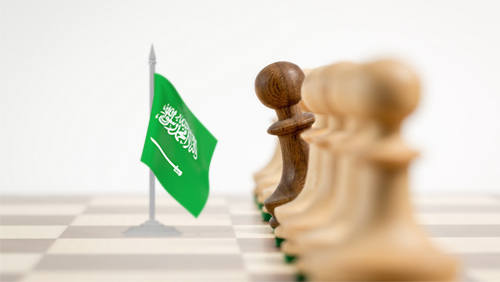Chess could soon take on the status of minor vices, which include music, in the Kingdom of Saudi Arabia.
 Recently, Saudi Arabia’s grand mufti—the kingdom’s top religious cleric—outlawed the centuries-old game, calling it a waste of time that encourages gambling, The Middle East Eye reported.
Recently, Saudi Arabia’s grand mufti—the kingdom’s top religious cleric—outlawed the centuries-old game, calling it a waste of time that encourages gambling, The Middle East Eye reported.
Abdulaziz Bin Abdullah was on his weekly television show, answering viewers’ questions on daily religious matters when the subject of chess playing came up. According to the news outlet, the grand mufti said chess is forbidden for Muslims because it’s “an opportunity to squander money.”
“The game of chess is a waste of time and an opportunity to squander money. It causes enmity and hatred between people,” Abdullah said in the video clip that was posted two years ago, according to the report.
The grand mufti compared the centuries-old game, also considered a sport in many countries, to the pre-Islamic Arabian game maisir, in which players shoot arrows to win camel meat. Maisir is forbidden by the Quran.
Abdullah is considered the most powerful religious figure in Saudi Arabia, but The Middle East Eye was quick to point out that “his pronouncements do not carry the force of law.” The news outlet noted it is common practice for Muslims to ask religious guidance from scholars, but the clerics’ pieces of advice are not considered binding.
Chess, a game of skill, is considered by Muslim scholars different from games of chances like dice. However, scholars frown upon it if the game distracts a person from performing the five daily prayers, according to The Guardian. In any case, placing bets in a game of chess is forbidden.
Meanwhile, the grand mufti’s edict has sparked controversy on social media. Saudi Chess Association law committee president Musa Bin Thaily was quoted by The Middle East Eye saying he believed Abdullah, “being an old man in his 80s,” was unaware that players do not bet on the outcome of games.
“It’s never guaranteed that the religious police might stop any event, because chess isn’t a part of the sport and youth ministry,” Thaily said in a tweet.
In 1979, playing chess in public was banned in Iran due to its association with gambling. However, the haram was repealed in 1988 by Iran’s then supreme leader, Ayatollah Ruhollah Khomeini, on the condition that it will not be used as a conduit by gamblers.